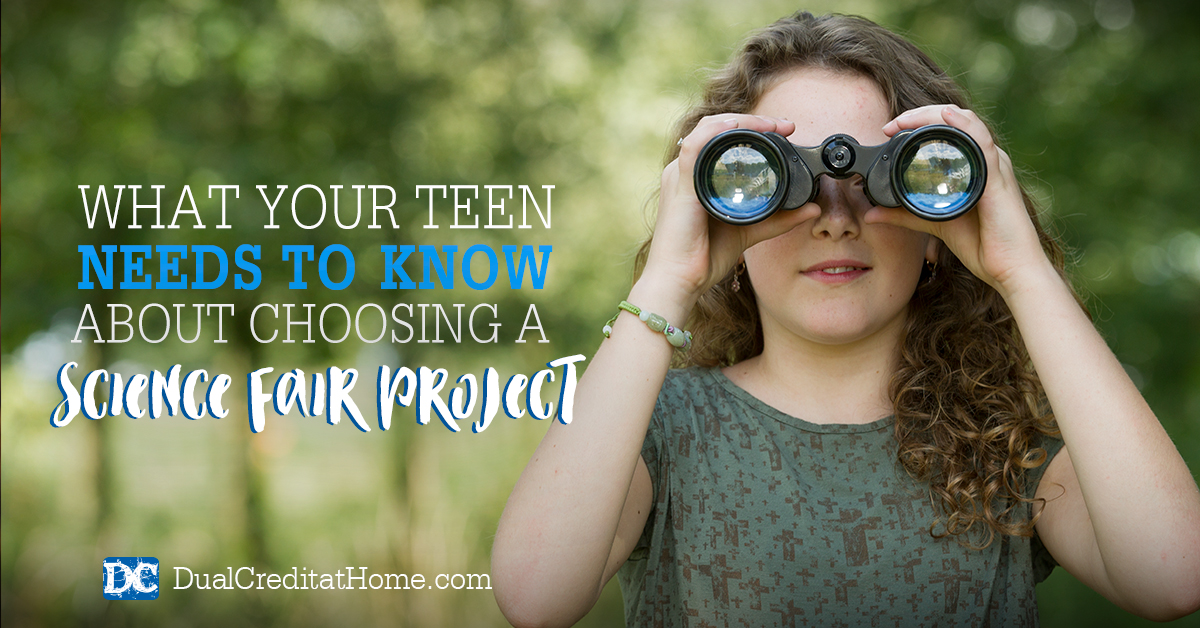science projects are infamous for involving the parents more than the students. I will never forget the time I spent with my dad working on one specific project. It was for a local home school group’s science fair and it deepened my relationship with my dad as well as taught me some valuable critical thinking skills.
Here are some things to think about when deciding what to do for your project that will help make sure you and your student are learning and not just making another vinegar volcano.

Review the Scientific Method
Science fair projects are based on scientific inquiry, which means you will be delving into a topic of study to solve a problem or answer a question. Here are the basics of the scientific method.
Step 1: Ask a question based on your observations.
Step 2: Hypothesize an answer to your question.
Step 3. Design an experiment to test your hypothesis.
Step 4: Analyze your data to see if your hypothesis is supported.
Step 5: Share your findings with others.
Choose a Science Fair Topic Based on Your Interests and Make Some Observations
Your topic will obviously have to fit within the parameters of the field of science you’re studying, but you should also choose a topic based on your interests and passions.
Whether you love animals, playing the guitar, cooking, or baseball, there are always new scientific discoveries to be made. Spend some time researching, observing, and thinking about your broad topic. Write down your observations and ask yourself questions until you narrow down your focus. Perhaps you notice that birds only visit your feeder between six and eight in the morning, or that your guitar sounds better when you play it in the bathroom. Why?
Ask a Question that can Tested, and Form a Hypothesis
When designing your science fair project, the hardest part is often asking the right questions. Not all questions are created equal, so be sure that your questions can be tested with the scientific method. Here are a few more tips for choosing a good scientific question.
- – A good question builds on what you already know.
- – A good question leads to more good questions.
- – A good question can be tested using an experiment and measurements.
Once you have chosen a question that meets the above criteria, you must then form a hypothesis to your question based on your observations and what you already know.
Believe it or not, choosing a topic for your science fair project is half the battle. Once you’ve chosen your topic and created your hypothesis, the fun can begin!
Get Becky’s Weekly Newsletter on Homeschooling High School
We will never sell or share your email address.



